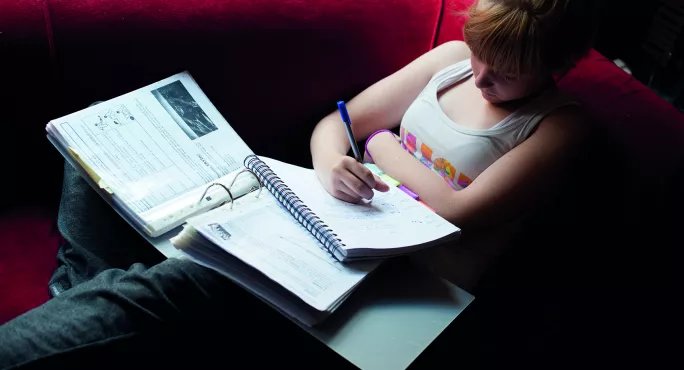- Home
- GCSEs: ‘We must tell pupils, “That’s enough”’
GCSEs: ‘We must tell pupils, “That’s enough”’

I’ve been teaching for 11 years, and I don’t think I’ve ever told a student that what they were doing - whether it’s coursework, revision or just hard work in class - was “enough”.
I have, however, told pupils when they were doing well and when they weren’t doing enough. In the mainstream education world, the phrase “that’s enough” is very rarely used in conjunction with learning. Behaviour, certainly. But revision and pressure? It’s certainly something I wish I’d said more often, especially as we approach GCSE results day.
High expectations are wonderful. I’m going to state that, outright, before I write anything else. Whether that comes in the form of an FFT D target grade, or your own hopes and dreams for a pupil, ensuring that we expect the best from our students is undoubtedly one of the reasons they achieve as well as they do - or even achieve at all, in some cases.
If you think of some of your most rewarding experiences with pupil successes, I would wager that many of them are down to you believing that they could do it and never giving up on them, no matter how many times you heard “I don’t get this”. A teacher’s absolute refusal to accept anything but the best makes all the difference with those pupils.
Casualties of the high expectation culture
That kind of culture can have a shadow side, however. We’ve all had to nurse frayed overachievers through GCSE year: those who soared in Year 10, doing everything we asked of them and more, then heard the “aim higher, do more, this is it” message of Year 11 and pushed themselves until the tears came daily. The students who spend much of the time in pastoral because going to class makes them cry. Those who, in your tutor group, get surlier and more cynical because they’re told to revise at least X amount every day by you, their teachers, senior leaders who suddenly know their names, during every assembly, even though they’re already trying their best. All pupils reach a point when they physically can’t do any more and feel like they can’t cry, and show their distress differently. Casualties of the unrelenting high-expectations culture.
Perhaps it has always been a part of school life, but I do feel as though I noticed it more in the past few years with the students. There was the typically A/B (7/6?) borderline student invited to morning sessions to push for those target grades, and didn’t feel as though they were helping at all but who felt unable to say no to various members of SLT. And the high-achieving, hard-working pupil who cried every day during tutor time because they felt so hopeless about the exams they would surely ace. The students who suddenly, aggressively, give up because “it doesn’t matter, I’m going to fail anyway”.
What’s to be done? The best teachers and teaching assistants need to work to reduce the amount of pressure on the student by reassuring them they’re doing “enough” revision. Senior leaders should praise them for their diligence and conscientiousness. The bravest staff should tell the pupils that they should have a night off. It’s a plaster, but it’s at least a step in the right direction.
I don’t really have any suggestions here - you might. I never found a good way of negotiating this area in a manner that worked with both the promotion of an academic, high-achieving culture and with my own professional judgement. Perhaps one step towards reducing the casualties is recognising who those causalities might be, before they happen. Recognition of a worrying dedication to perfectionism from one of your tutees in Year 10, or a sudden inability to handle pressure in one of your students, could be a sign that they may not cope with exams.
But what should we do once we’ve identified likely candidates? It’s your job to support them. That’s true but, of course, you’re already doing that. You wouldn’t‘ve noticed otherwise. It takes a courageous teacher to take a different tack with that student, to tell them that exams don’t matter more than health and they should just do their best.
Will that one message stick when a barrage of “revise more, work harder” messages come through? Few teachers feel confident enough to say to a student that they’re doing “fine”: what if that student finds themselves on an intervention list? Does it fit with creating a culture of high expectations and higher achievement? Could word get around that you don’t promote high expectations, leading to monitoring/observations or a general awareness that you’re not really working with the school to get the best outcomes for each and every child. Worse yet - what if that student takes what you said to heart, becomes complacent and then gets lower grades than they should, leading to reduced life chances?
Perhaps it’s far easier to keep quiet and parrot the same message to each student, regardless of your professional judgement.
Jemma King is an education coach. For more information, contact jkingeducoach@gmail.com
Keep reading for just £1 per month
You've reached your limit of free articles this month. Subscribe for £1 per month for three months and get:
- Unlimited access to all Tes magazine content
- Exclusive subscriber-only stories
- Award-winning email newsletters